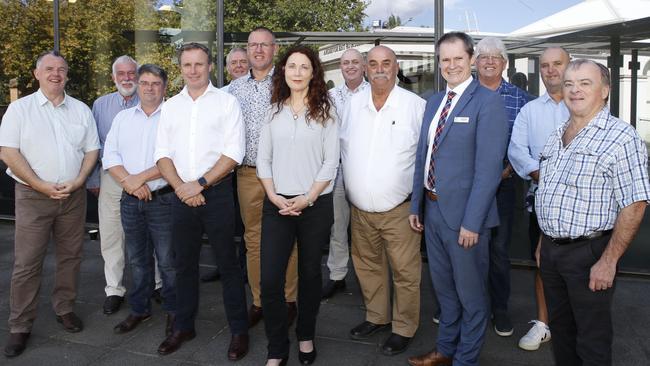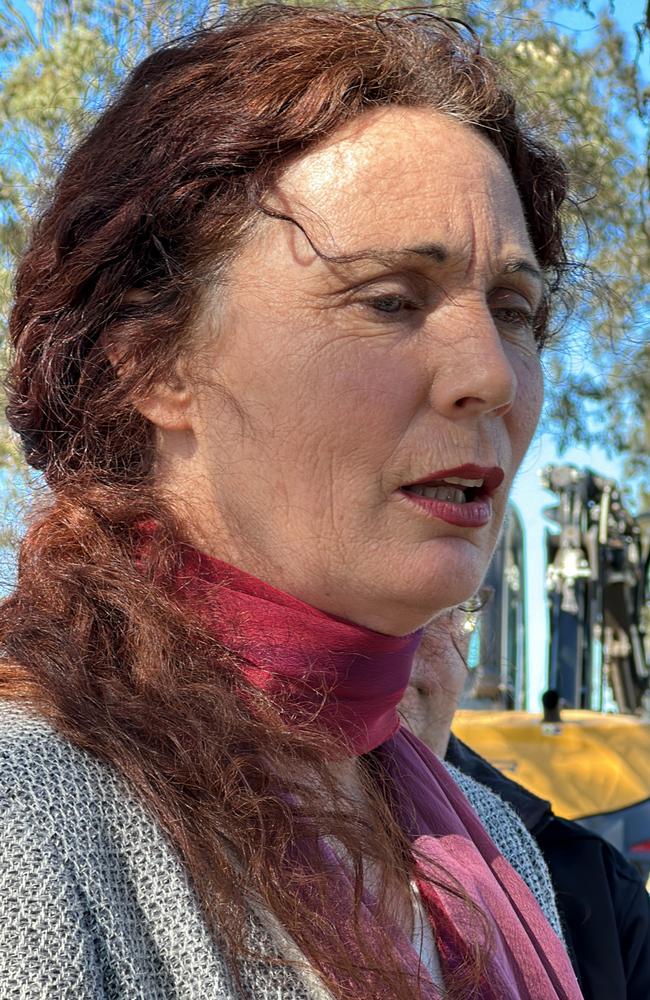Tweed Mayor Chris Cherry leads NSW regional leaders calling for state, federal housing assistance as homelessness worsens
Tweed’s mayor has led regional leaders calling on the NSW and federal governments to urgently tackle a critical shortage of affordable housing as homelessness and disadvantage spikes. Here’s the latest.

Regional News
Don't miss out on the headlines from Regional News. Followed categories will be added to My News.
Tweed’s mayor has led a team of regional leaders calling on the state and federal governments to urgently address a critical shortage of affordable housing as homelessness and disadvantage spikes.
The North Coast has been hammered by a lack of housing on the back of the record 2022 floods – Byron Bay, for instance, had more rough sleepers recorded in a count than Sydney city mid-last year, and crucial services for rough sleepers are few and far between.
Peak body Regional Cities NSW, which is lobbying the state and federal governments over regional housing concerns, has unanimously backed a motion to outline the worsening situation to NSW Housing and Homelessness Minister Rose Jackson – also North Coast Minister – and the chief executive of the new Homes NSW group Rebecca Pinkstone.

Mayors have been clear – there is simply not enough housing in the growing regions and it needs speedy attention.
The motion was put to the Regional Cities NSW meeting in Wagga Wagga last week.
Regional Cities NSW represents 15 main regional cities in NSW including Albury, Armidale, Bathurst, Broken Hill, Coffs Harbour, Dubbo, Goulburn Mulwaree, Griffith, Lismore, Maitland, Orange, Queanbeyan Palerang, Tamworth, Tweed Shire and Wagga Wagga.
Tweed Shire Council Mayor Chris Cherry said her patch was struggling.
“The urgency of the housing crisis across regional cities is dire, with the lack of housing contributing to a rising inability of businesses to attract workers,” she said.
“We are seeing increased levels of homelessness in the Tweed, along with increased anti-social behaviour as people become more desperate.
“What we need are tangible outcomes on the ground.”

Ms Cherry said the Tweed’s situation had significantly worsened after the Covid pandemic, during which residents from capital cities flocked to the Northern Rivers to dodge lockdowns.
Tweed states the situation “was further exacerbated after thousands of homes were either lost or damaged” in the 2022 flooding.
“It is incredibly frustrating to hear about the worsening housing situation in our Shire when we have significant private residential developments already approved and ready to go but no lever to force developers to forge ahead in a timely manner,” Ms Cherry said.
Chair of Regional Cities NSW Mathew Dickerson, also Mayor of Dubbo, said the state needs to stand up for the regions.
“Regional cities have to think outside the square to deliver for their local community and we need to put all options on the table if we are to tackle this generational problem in any meaningful way,” he said.

“In some ways its is a good problem to have: residents want to move to our regional cities. “Unfortunately we simply don’t have enough housing for the people who want to make the move to regional locations.”
The motion seeks an urgent audience with Ms Jackson and Ms Pinkstone to learn more about investment plans and on-the-ground solutions.
The regional leaders have also called for levers to incentivise approved private residential development.
A submission to the state’s draft Budget will include a push for:
– Continued support for regional housing needs.
– Continued work with local governments to increase the supply of social and affordable housing.
– Continued support for incentive mechanisms to improve land banking and the Build to Rent measure.
– Annual indexing of developer contributions.
– Ongoing support for the Local Infrastructure Renewal Scheme (LIRS)
– Support for the development of regional planners.
– Increase the density of existing affordable and social housing properties in regional NSW.





